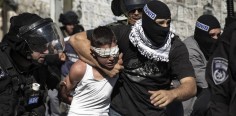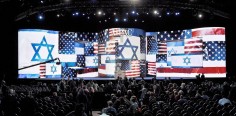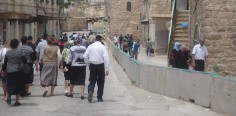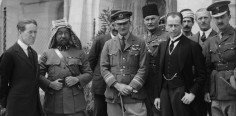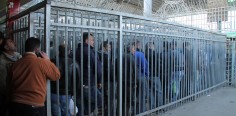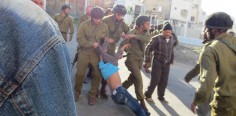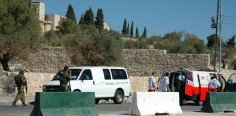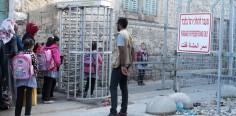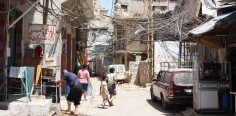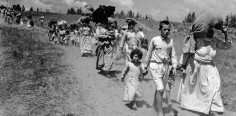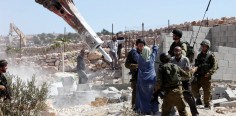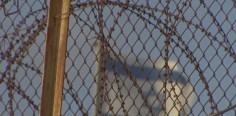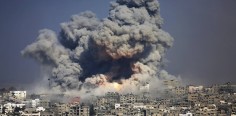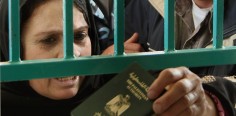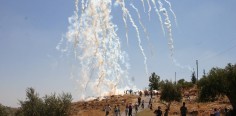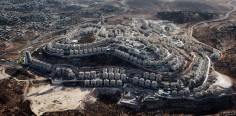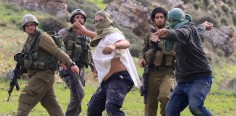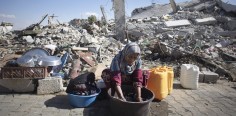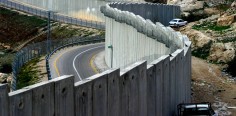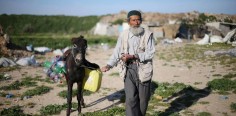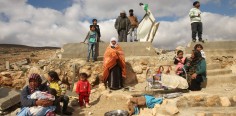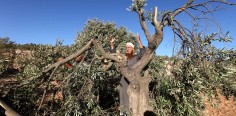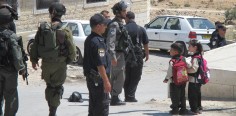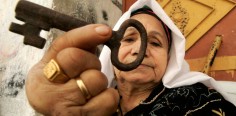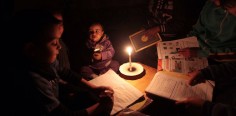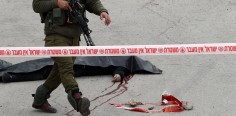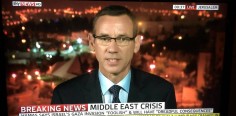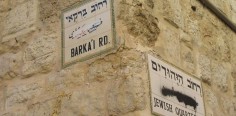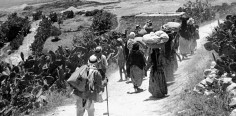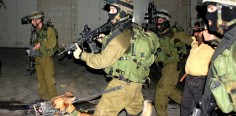THE GAZA SIEGE
GAZA WAS AND STILL IS THE LARGEST PRISON ON EARTH, A GRUESOME EXPERIMENT PERFORMED ON LIVING HUMAN BEINGS.
GIDEON LEVY, PROMINENT ISRAELI JOURNALIST AND AUTHOR
Imagine living with another 2 million people in one of the most densely populated places on earth.
Imagine being unable to leave for any reason. Not for a medical emergency. Not for a funeral. Not to pursue your education. Nothing.
Imagine restrictions on imports and exports being so strict that everyone is living in or near complete poverty and there are no painkillers for you to buy.
Imagine hearing the continuous humming of drones as they patrol your sky.
Imagine repeatedly being on the receiving end of an indiscriminate military onslaught with nowhere to turn.
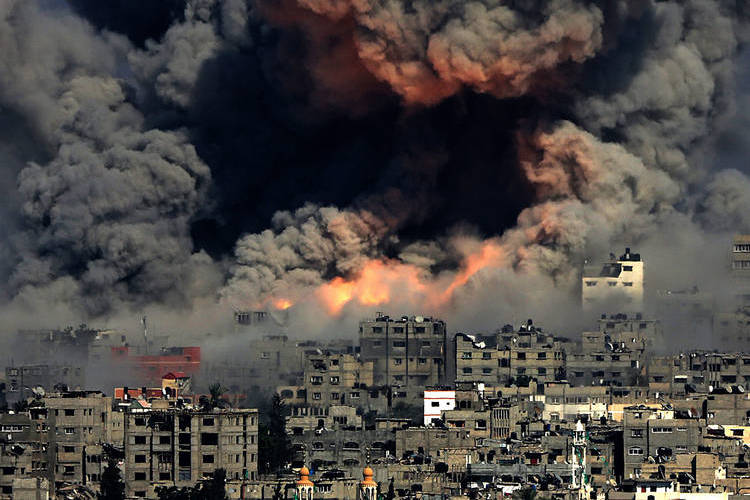
What you're imagining is a place called the Gaza Strip, which is a small rectangle of land located in the southeast corner of the Mediterranean.
Up until 2005, it was fully occupied by the Israeli army and its population was subjected to frequent raids, home demolitions and dangerous checkpoints. One-fifth of the land was taken over by 21 settlements, Israeli military bases, bypass roads, and buffer zones, and internal checkpoints split the remainder of the Strip into five isolated sub-areas.
In 2005, the Israeli army redesigned its Gaza strategy, unilateraly withdrawing the 8,000 illegal Israeli settlers from the small territory. Shortly after, Israel began to lay seige to Gaza.
As part of its siege, Israeli authorities maintain control of Gazas borders, water and airspace. It retains control of Gaza's imports, exports, electricity, fuel, currency, electromagnetic spectrum, residency permits and travel rights.
Denying people the right to travel in or out of Gaza has prevented its people from visiting or receiving friends and family, accessing life-saving medical care as well as educational and business opportunities.
As a result Gaza's economy has plummetted, with unemployment rates approaching 50%.
Although Gaza has a coast on the Meditaranean, its fishermen are crowded into a narrow zone heavily patrolled by Israeli gunships. They face gunfire, detention,or the destruction of their boats if they venture out too far, making healthy and sustainable fishing practices impossible.
Israel also enforces 'buffer zones' on large areas of land near the rest of Gaza's borders by periodically firing on anyone who enters them. This has led to dozens of casualties and left a large percentage of the productive land in Gaza effectively off-limits.
Israel has also repeatedly bombed Gaza, destroying huge amounts of its infrastructure, including its only electricity plant, but they are unable to rebuild their infrastructure because of the severe restrictions that Israel has on imports.
What was, until recently, a rich agricultural area that produced fruits, vegetables and cut flowers for lucrative export is now described by some as a "deliberately engineered humanitarian crisis" with the UN saying that it will be uninhabitable by 2020.
It is effectively the world's largest open-air prison. Its jailers take no responsibility for the well-being of the prisoners, using indiscriminate violence whenever the inmates dare protest.
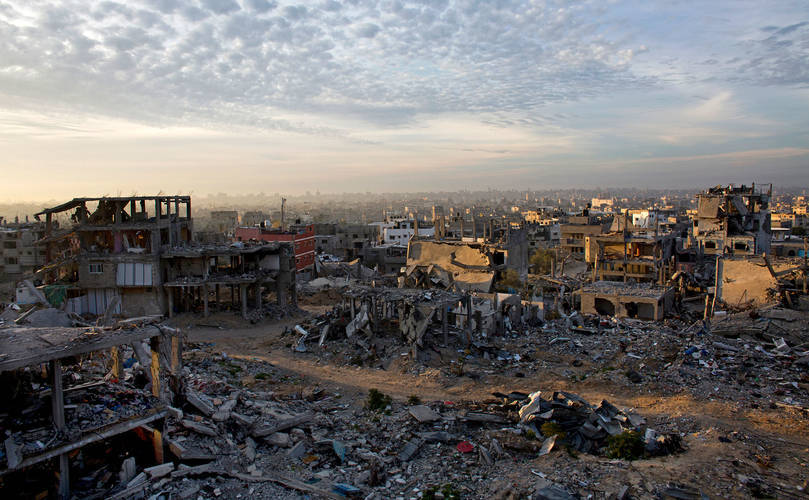
For them it means not eating. There are whole families who don't eat for a few days because of the blockade. They eat bread and water. Like in the Holocaust.
Israeli Soldier (Breaking the Silence)I have eight brothers and sisters, and none of them could get a permit to attend my wedding. Everyone at the wedding was happy but me. [...] I never imagined that my brothers, sisters, relatives and friends wouldn't be with me on my wedding day. I felt lonely and sad. The next day, my mother and father went back to Gaza, and they haven't been able to get a permit to visit me since.
Asma ZaghlulWe rely on humanitarian aid now. Every three months, I get a food package from the aid agency containing 90kg of flour, 12l of cooking oil, 8kg of sugar, 8kg of rice, 6kg of milk and 6 packages of meat. When I look at my plots of land, I feel bitterness and pain. I can't work my land. While on the other side of the border, I can see Israeli farmers working their land all year round. [...] Their land is green and they have plenty of water, while my land is barren and dry.
'Abd a-RahmanAfter Israel closed the crossings, our lives changed and the distance from Nibal started making me miserable. I’m a mother and I miss Nibal and her children every day. It’s especially hard during the holidays and on special occasions. Every time Nibal gave birth, I was really worried about her and felt so bad that I couldn’t be with her, because a woman needs her mother at times like that. [...] It was especially hard because two of Nibal's babies died shortly after birth.
Fatmah Abu 'Issa
